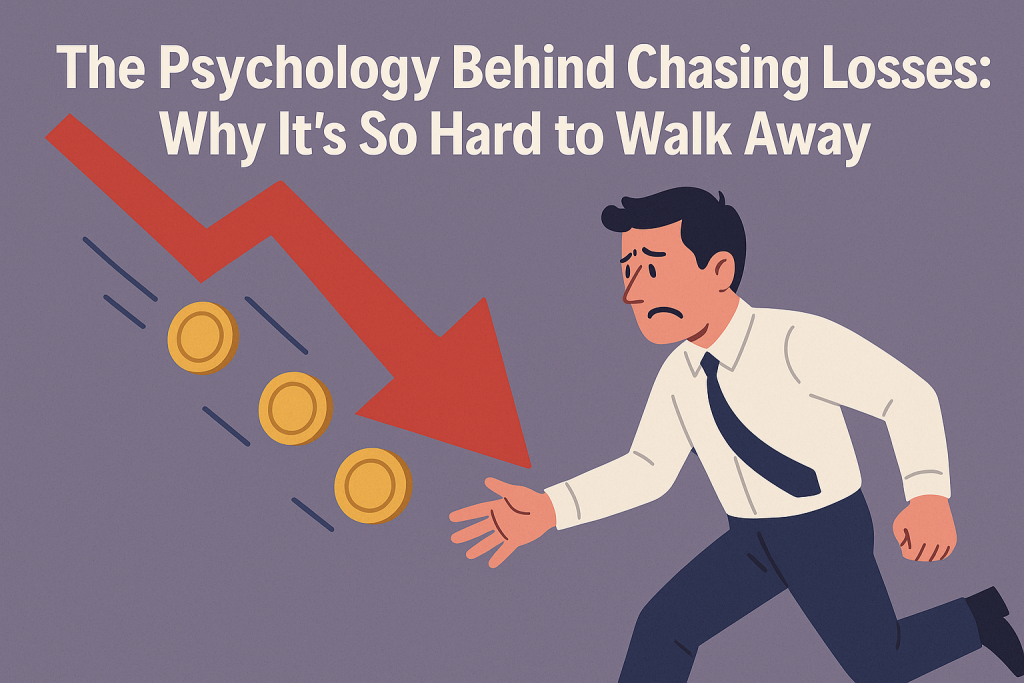
Have you ever found yourself trying to win back what you just lost? Maybe you were only supposed to play for ten minutes, but an hour later, you’re still spinning the reels or betting on the next baccarat hand. This common behavior is known as “chasing losses”, and it’s something that affects casual players and high rollers alike. But why does it happen? And why is it so hard to stop once you’ve started?
In this article, we’ll explore the psychology behind chasing losses, how the brain reacts to wins and losses, and why this phenomenon is more complex than it seems.
The Illusion of Control
At the heart of chasing losses lies the illusion of control. When playing games like poker, roulette, or even slot machines, players often feel they can influence the outcome — by changing strategies, increasing bets, or believing they are “due” for a win. This creates a false sense of control over a fundamentally random process.
Even though games in an online casino are powered by RNG (Random Number Generators), the illusion that skill or timing could affect results makes players more likely to continue playing, even after significant losses.
Loss Aversion: Losing Hurts More Than Winning Feels Good
One of the most powerful psychological principles driving gambling behavior is loss aversion — a concept in behavioral economics. Simply put, the pain of losing RM100 is more intense than the pleasure of winning RM100.
This emotional imbalance drives players to try to “cancel” the loss by continuing to play in hopes of breaking even. It feels like a mission to restore balance, but often, it only leads to deeper losses.
The Role of Dopamine and Brain Chemistry
When you win — even a small amount — your brain releases dopamine, the same chemical associated with pleasure, excitement, and reward. This creates a rush that’s hard to forget.
However, the brain also remembers near-wins and small wins. Even when you’re losing, occasional minor wins can keep dopamine flowing, reinforcing the behavior and making it harder to walk away. This pattern can trick the brain into thinking that a big win is just around the corner, even if the odds say otherwise.
The Gambler’s Fallacy: “I’m Due for a Win”
Another mental trap is the gambler’s fallacy, where players believe that after a long losing streak, a win is “guaranteed” soon. But in games of chance, each round is independent. Just because you’ve lost ten times in a row doesn’t mean the next spin will be a win.
This belief leads players to bet more aggressively in an attempt to recover, making the situation even riskier.
The Sunk Cost Fallacy: “I’ve Come This Far”
The sunk cost fallacy refers to the tendency to continue an endeavor once an investment in money, time, or effort has been made. In gambling, players often tell themselves:
“I’ve already lost RM500 — I can’t stop now.”
This mindset leads to more betting, as walking away feels like admitting defeat. Ironically, continuing to play often results in losing even more.
Emotional Decision-Making Takes Over
Under pressure, our brain tends to shift from rational thinking to emotional reactions. After a loss, especially a big one, emotions like frustration, anger, or desperation can override logic. This is why many players find themselves betting beyond their budget, chasing the feeling of a “comeback.”
Why It’s Hard to Walk Away
The brain clings to hope of recovery.
The emotional pain of losing is too uncomfortable to accept.
Each bet feels like a possible redemption story.
Occasional small wins confuse the brain and reinforce the behavior.
Players don’t want to feel like they “wasted” their time or money.
The Aftermath: Craving That Feeling Again
After your first kiss, you probably wanted another. Baccarat is no different. That first win plants a seed in your brain. Can I do it again? Was it skill? Was it luck? The curiosity becomes motivation. Psychologists call it a dopamine imprint — your brain tags the moment as “high-value,” urging you to chase that rush once more.

Conclusion
Chasing losses isn’t just about wanting to win money back — it’s about emotions, psychology, and how the human brain reacts to stress and reward. Understanding this can help players become more aware of their behavior and create better boundaries when it comes to gambling.
Knowing when to walk away isn’t a weakness — it’s a strength that comes from understanding how the game affects not just your wallet, but your mind.
